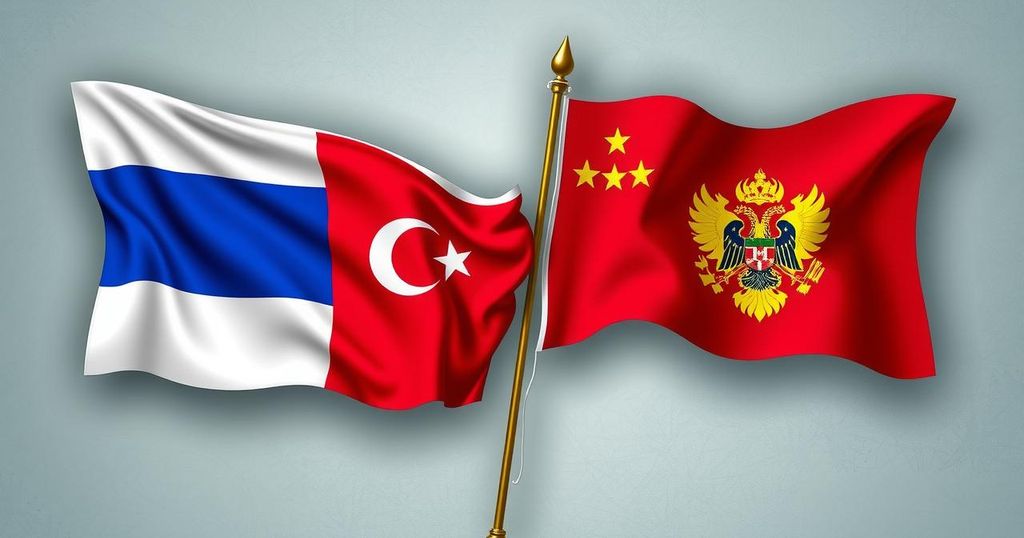Burundi has signed a nuclear cooperation agreement with Russia during the Russia-Africa Forum, aimed at enhancing Burundi’s nuclear infrastructure and safety while promoting the peaceful use of atomic energy. The agreement includes the formation of a joint coordination committee and initiatives in areas such as radiation technologies and personnel training. This collaboration aligns with Burundi’s goals for energy security as part of its Burundi-2040 project, reflecting a growing interest in nuclear energy among African nations.
On the sidelines of the Russia-Africa Economic and Humanitarian Forum in St. Petersburg, an agreement was signed between Burundi and Russia to enhance nuclear cooperation. The Memorandum of Cooperation (MoC) was executed by Burundi’s Minister of Foreign Affairs and Development Cooperation Albert Shingiro alongside Rosatom Director General Alexei Likhachev. This agreement aims to assist in developing Burundi’s nuclear infrastructure, regulate nuclear and radiation safety, and promote research in peaceful atomic energy applications, among other initiatives.
In addition to establishing a joint coordination committee for expert exchanges and sharing scientific and technical data, the agreement emphasizes the production of radioisotopes and the training of professionals for the nuclear sector. Previously, a Burundian delegation led by President Evariste Ndayishimiye toured the Leningrad nuclear power plant, which utilizes VVER-1200 reactors, as part of the Burundi-2040 initiative aimed at achieving energy security in the nation.
Burundi has shown a robust commitment to nuclear energy, having signed its first Country Programme Framework with the International Atomic Energy Agency (IAEA) in 2016 and subsequently presenting a legislative bill in 2019 regarding the safety and peaceful use of nuclear energy. The Russia-Africa Forum witnessed similar discussions between Russia and other African nations concerning nuclear technology, indicating a broader regional interest in the peaceful applications of nuclear energy. Russia plans to expand its nuclear cooperation with various African nations, including Ethiopia and Zimbabwe, fostering a continental movement towards energy diversification and security in a sustainable manner.
As Africa’s energy landscape evolves, countries such as Egypt, where Rosatom is developing the El Dabaa nuclear plant with four VVER-1200 units, are leading the way in integrating reliable nuclear power sources, alongside established nations such as South Africa. These developments underscore the importance of international collaborations in achieving energy independence and reinforcing safety protocols in nuclear energy utilization, contributing to a secure future for African countries.
The agreement between Burundi and Russia on nuclear cooperation is set against the backdrop of growing interest among African nations in harnessing nuclear energy. The Russia-Africa Economic and Humanitarian Forum serves as a platform for discussing economic partnerships, with nuclear energy being a focal point. This initiative aligns with Burundi’s plans for energy security as outlined in its Burundi-2040 project, which aims to leverage various energy sources for independence. Other African countries like Ethiopia and Zimbabwe are also exploring opportunities for nuclear energy use, reflecting a continent-wide trend toward collaboration in this sector following legislative frameworks and international partnerships with organizations like the IAEA. Historically, Russia’s involvement in Africa’s nuclear ambitions stems from agreements forged at earlier forums, such as the one in 2019, aimed at peaceful uses of nuclear energy. The landscape in Africa is diverse, with South Africa leading in nuclear energy usage while nations like Egypt prepare to establish their own nuclear infrastructures facilitated by Russian expertise and resources.
In conclusion, the agreement between Burundi and Russia represents a significant step toward enhancing nuclear cooperation, aimed at developing Burundi’s nuclear infrastructure and promoting peaceful applications of atomic energy. This partnership is part of a broader trend among African nations to collaborate on nuclear energy projects, fostering energy independence and security across the continent. As countries like Egypt and Zimbabwe also engage in similar agreements, it becomes evident that nuclear energy is increasingly viewed as a critical component of Africa’s energy future, supported by international partnerships and technological exchange.
Original Source: world-nuclear-news.org






